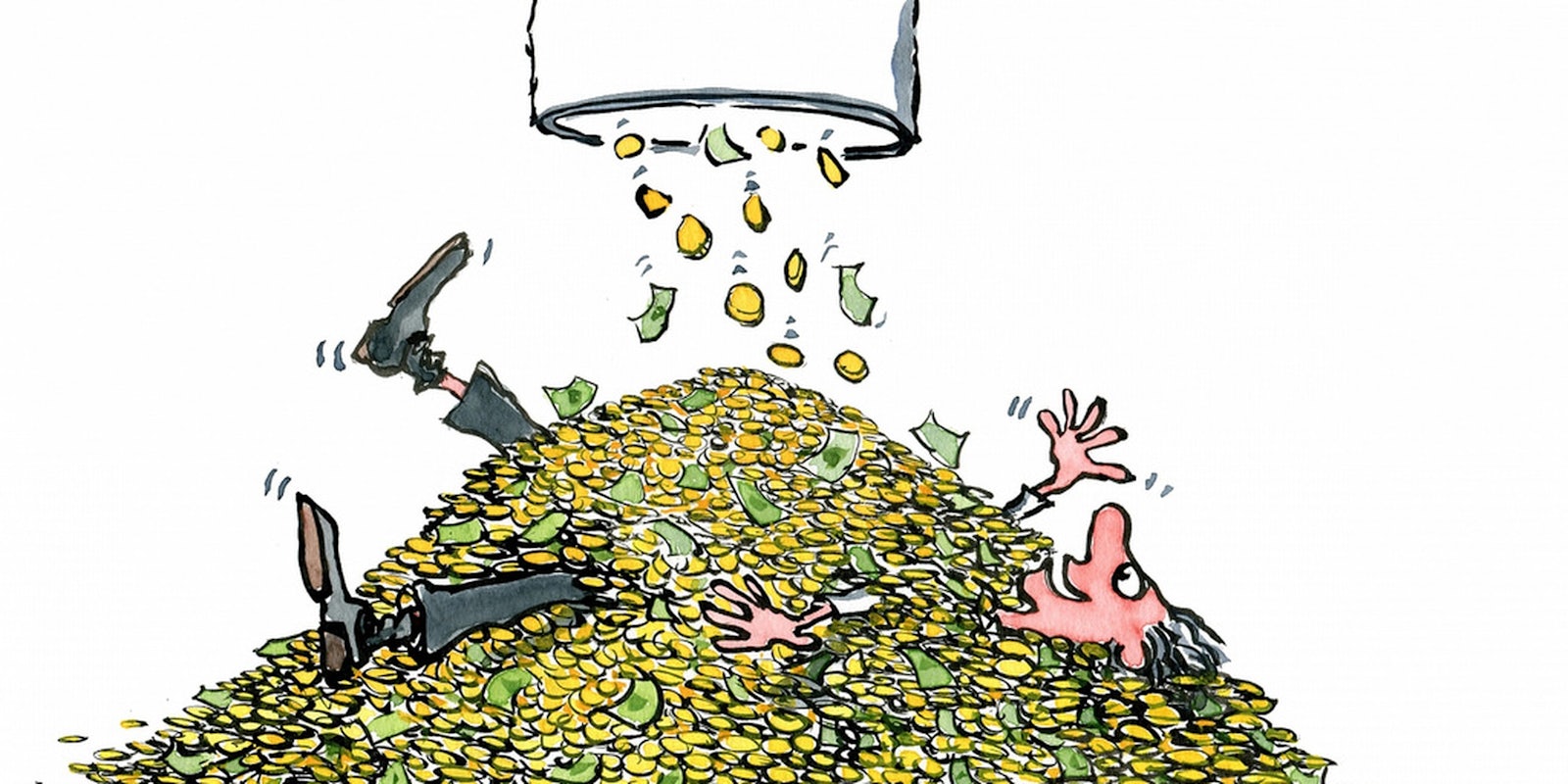Our activity on social media is often meant to be an extension of our aspirational selves. We hope to reveal who we desire to be through carefully posed Instagram photos or painstakingly curated tweets. The profit from this work comes in the form of attention (“Likes” or “Favs”), but for many users, platforms like Instagram are also a way of promoting their own artwork and photography, just as Twitter can be a place for comedians and writers to test out new material and jokes. For most of these social media artists, the goal is not just to be noticed but to profit from it.
This idea that social media posts are creditable works of art in and of themselves is why a new exhibit from controversial artist Richard Prince has earned him yet more negative attention. Prince, known for “reappropriating” work by photographers into his own art with minimal changes made to the originals, unveiled new works that are nothing more than screenshots of Instagram accounts, just blown up gallery size for display. The photos, largely consisting of selfies taken by attractive women with an added comment from Prince’s own Instagram account, have been selling for a jaw-dropping $90,000 a pop.
Because Prince is using the images without the consent of the original owners, it calls into question whether the expensive pieces are really his to sell—and whether the photos’ owners should take legal action against the artist. Prince has been successful in court before. In 2013, he won a lawsuit from a photojournalist who claimed Prince’s use of his photographs violated standards of fair use. In that case, Prince merely blurred the photographs and drew blue dots around them. According to the judge, however, this was enough of an alteration for Prince’s work to qualify as original.
For most of these social media artists, the goal is not just to be noticed but to profit from it.
Fair Use is one of the more complex branches of copyright law—and, therefore, open to the most interpretation. The Center for Social Media and Washington School of Law at American University boils Fair Use standards in cases like the Prince matter down to two questions: Does the new work transform the original in a way that “adds value to and repurposes the work for a new audience” and does it use just enough of the original material to achieve the desired effect?
This is an incredibly vague standard for any medium but especially so for visual art. While much of Prince’s recent exhibit is directly copied from the work of strangers—some of them aspiring artists themselves—his fans have been quick to point out how Prince’s comments below the selfies change how the photo is read by viewers. As Jerry Saltz wrote of the works in an essay for Vulture, Prince’s commentary “adds layers on top of the disconcerting images” and remark upon “privacy, copyright, and appropriation, twisting images so that they actually seem to undergo some sort of sick psychic-artistic transubstantiation where they no longer belong to the original makers.”
Unlike Mr. Saltz, I am not the Senior Art Critic for New York magazine, so I’m fully willing to admit the supposedly transformative power of Prince’s comments goes right over my head. But to suggest typing “No Cure, No Pay” below a fashion blogger’s selfie is enough of a “Get Out of Jail Free” card to let Prince off the hook for theft is blurring the already thin line between critical snobbery and common sense.
Fair Use is one of the more complex branches of copyright law—and, therefore, open to the most interpretation.
To explain further, let’s look at an artist that is similarly reliant upon the works of others but does transform them into something completely different. Girl Talk, aka Pittsburgh native Gregg Gillis, has made quite a successful career out of his album-length mashups of big name artists. His festival dates have become legendary and his albums, hosted on a pay-what-you-want scale by the aptly named label Illegal Art, “break the Internet” every time they are announced. While his work consists of nothing “original,” his use of others works is so ingenious and novel they can often hardly be said to be the same thing.
Take, for example, this section from his 2008 album Feed The Animals. It consists of little more than the double-bass and distorted guitars from Metallica’s “One” and the vocals from “Lip Gloss” by Lil Mama. By combining the two and adjusting the tempo and pitch as necessary, however, he turns the pinnacle of brooding 80’s thrash and a shamelessly plastic pop song into an intensely danceable and energizing rock song about makeup. Unlike Prince, Gillis doesn’t just take other people’s material; through the art of remix, he elevates his myriad sources to a level of transcendence. He makes the old new again.
Conversely, if commenting on a photo drastically affects the contents of the photo, I could leave a message on Jerry Saltz’s essay, take a screenshot of it, and call his work my own. The only argument Richard Prince or any of his defenders could make is that, by hanging an Instagram selfie in an art gallery, Prince is encouraging us to view the work we put into social media with the same seriousness as any artist expecting to find their work valued so highly. Unfortunately, more credit is still due to the Kinko’s Prince used to enlarge the screenshots than to Prince himself for coming up with the idea.
More importantly, it fails to justify the millions Prince made through the work of strangers.
Gillian Branstetter is a social commentator with a focus on the intersection of technology, security, and politics. Her work has appeared in the Washington Post, Business Insider, Salon, the Week, and xoJane. She attended Pennsylvania State University. Follow her on Twitter @GillBranstetter.
Photo via HikingArtist.com/Flickr (CC BY ND 2.0)


